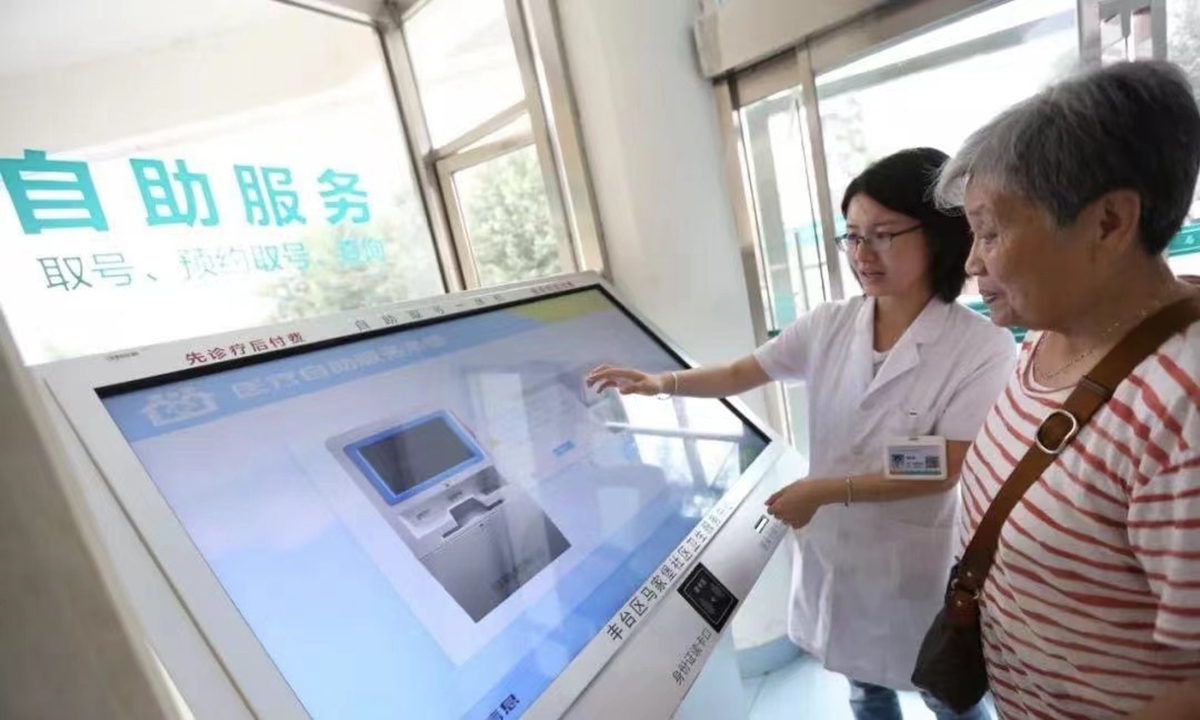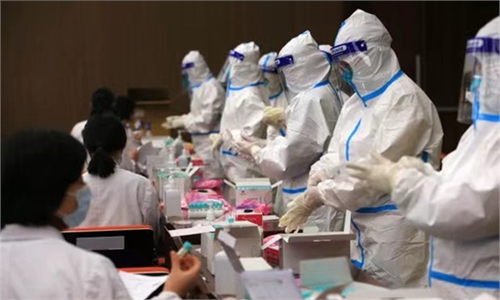Update: Beijing’s paramount medical service system operates normally during the negotiation

A patient at a hospital in Beijing take numbers of appointment under the guidance of staff. Source: Beijing Daily
The online system operator of Beijing's paramount medical service system Jingyitong, Beijing Yihe Spring Technology Co, said in a statement late Tue that it had begun negotiations with the investor of the system - the Bank of Beijing - with the coordination of Beijing health authorities.Both parties will negotiate on the historical investment and the financing of the system's future operations, during which the online system will operate normally and will continue to provide services to all patients.
The Beijing Municipal Health Commission stated on Tuesday that it is working with the Beijing Hospitals Authority to urge Jingyitong's online system operators, Beijing Yihe Spring Technology Co and Bank of Beijing Co Ltd,which funded the system, to resolve the dispute in accordance with the law, so that the public can continue to access convenient medical appointment services.
Bank of Beijing also released a notification on Tuesday, saying it had received a notice from Beijing Yihe Spring Technology Co about the suspension of the system. The bank attaches great importance to the safe operation of Jingyitong and will continue to communicate with the company to ensure the medical treatment of patients, read the statement.
A document announcing the "imminent closure of Jingyitong" was circulated online on Monday. Beijing Yihe Spring Technology Co, which is responsible for the construction and operation of Jingyitong's online system, said that the Bank of Beijing, the investor of the system, refused to fulfill its obligations, resulting in the company alone bearing the hundreds of millions of yuan of project expenses during the past seven years.
The company said it was unable to afford the high operating costs and had to suspend the system starting from 9 am on April 20, which may seriously affect online medical appointment services for patients in Beijing.
A customer service officer with Beijing Social Insurance, which is in charge of Jinyitong's medical cards, told the Global Times on Tuesday that it is unclear whether subsequent operations of Jingyitong would be suspended, but the use of the balance on the card will not be affected.
Meanwhile, the customer service in charge of Jingyitong's online medical appointments could not be reached through the phone call as of press time. Besides, the official WeChat account of the system showed that existing appointments can still be picked up on hospital machines as normal, and new reservations will depend on the content displayed on the page, said the official Wechat account of Jingyitong.
Jingyitong is a real-name IC medical card jointly issued by the Beijing Municipal Health Commission, the Beijing Hospitals Authority and the Bank of Beijing. It can be used as a medical card in hospitals, and can be used for registration, payment and medical test results queries. It is also suitable for non-insured patients both from Beijing and other regions.
The Jingyitong medical card was first launched in some hospitals in Beijing in April 2012. The social security card and WeChat Payment were incorporated into the system in 2015.
As of April 2022, the official account of Jingyitong shows that the number of cooperative hospitals in Beijing has reached 29, including a number of first-rate hospitals.
According to media reports, a total of 24.51 million Jingyitong medical cards have been issued by early 2021, becoming the main tool used to take medical appointments in Beijing.
By the end of 2020, the number of registered appointments on Jingyitong accounted for nearly 90% of the outpatient appointments of hospitals in Beijing, providing services for 500 million patients.
Since the outbreak of COVID-19, many hospitals have reduced or even closed offline medical appointment services in order to reduce cross-infections, and the vast majority of appointments are made online, especially through Jingyitong, reports said.

